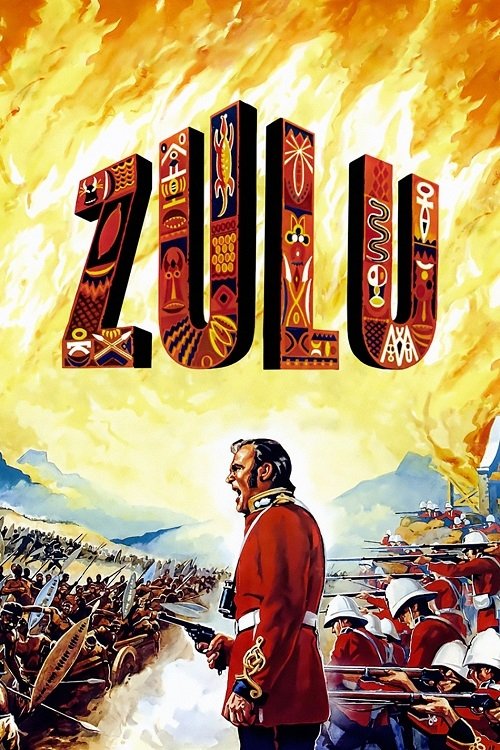
Title: Zulu
Year: 1964
Director: Cy Endfield
Writer: John Prebble
Cast: Stanley Baker (Lt. John Chard R.E.),
Jack Hawkins (Rev. Otto Witt),
Ulla Jacobsson (Margareta Witt),
James Booth (Pte. Henry Hook),
Michael Caine (Lt. Gonville Bromhead),
Runtime: 138 min.
Synopsis: In 1879, during the Anglo-Zulu War, man-of-the-people Lt. Chard and snooty Lt. Bromhead are in charge of defending the isolated and vastly outnumbered Natal outpost of Rorke's Drift from tribal hordes.
Rating: 7.391/10
Echoes of Valor: The Resonant Craft of *Zulu* (1964)
/10
Posted on July 19, 2025
In Zulu (1964), director Cy Endfield transforms a historical skirmish into a vivid tapestry of human endurance, weaving a narrative that pulses with both restraint and intensity. The film, depicting the 1879 Battle of Rorke’s Drift, centers on a small British garrison facing overwhelming Zulu forces. Its power lies not in grandiose spectacle but in the meticulous interplay of character, setting, and visual storytelling, though it occasionally stumbles in its historical framing.
Endfield’s direction is a masterclass in spatial economy. The mission station, a claustrophobic outpost dwarfed by the South African landscape, becomes a character itself its makeshift barricades and open fields amplifying the tension between vulnerability and defiance. Cinematographer Stephen Dade’s work elevates this further, with wide shots of the Natal hills contrasting the intimate chaos of battle. The camera lingers on sweat-streaked faces and trembling hands, grounding the conflict in human fragility. Yet, the film’s portrayal of the Zulu warriors, while visually striking, risks reducing them to a monolithic force, a flaw reflective of its era’s limited cultural lens. This simplification, though not malicious, slightly undermines the narrative’s depth.
The screenplay, co-written by Endfield and John Prebble, excels in its economy of dialogue. It avoids expository excess, letting silences and glances convey the soldiers’ fear and resolve. Michael Caine’s breakout performance as Lt. Gonville Bromhead is a revelation his aristocratic coolness cracks subtly, revealing a man grappling with duty and doubt. Stanley Baker’s Lt. John Chard complements this, his stoic pragmatism anchoring the ensemble. The supporting cast, including Jack Hawkins, brings texture, though some characters feel underwritten, a minor misstep in an otherwise tight script.
John Barry’s score is a triumph, its understated brass and percussion echoing the rhythm of impending conflict without overpowering the drama. The music mirrors the film’s pulse deliberate, then explosive enhancing the visceral impact of the battle sequences. These scenes, choreographed with precision, avoid glorifying violence; instead, they highlight its toll, with each clash feeling earned rather than gratuitous.
Zulu’s enduring resonance lies in its ability to balance historical specificity with universal themes of courage and survival. While its depiction of the Zulu perspective lacks nuance, the film’s craft its direction, visuals, and music creates a gripping portrait of human tenacity. It remains a compelling study of conflict, not as a clash of civilizations, but as a crucible for individual and collective resolve.
0
0
